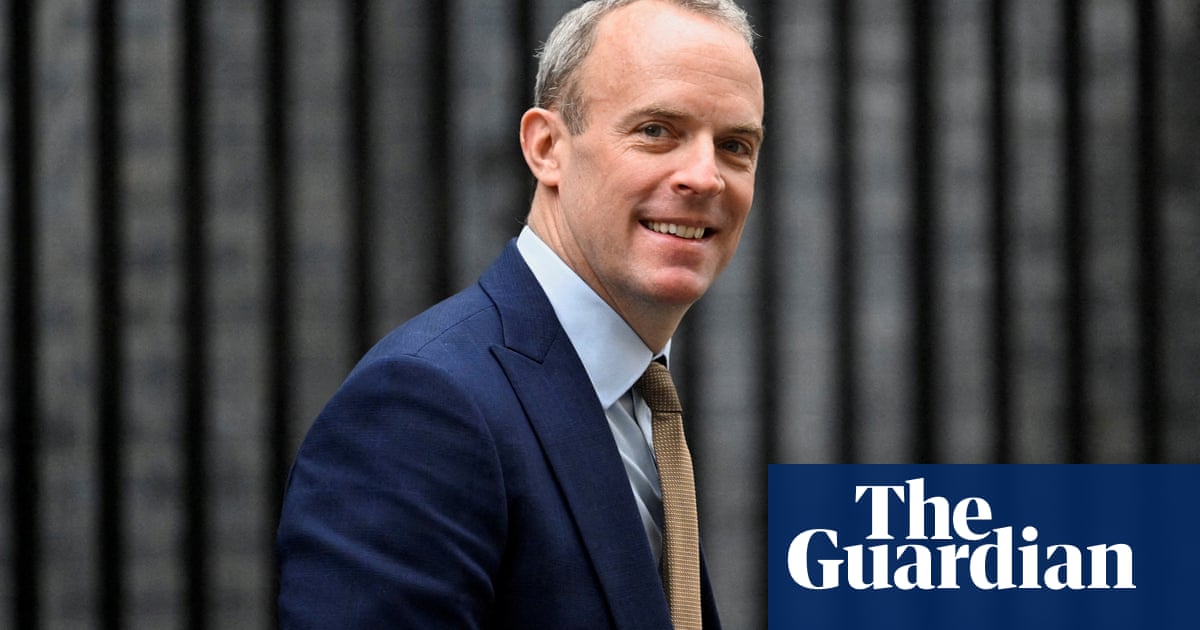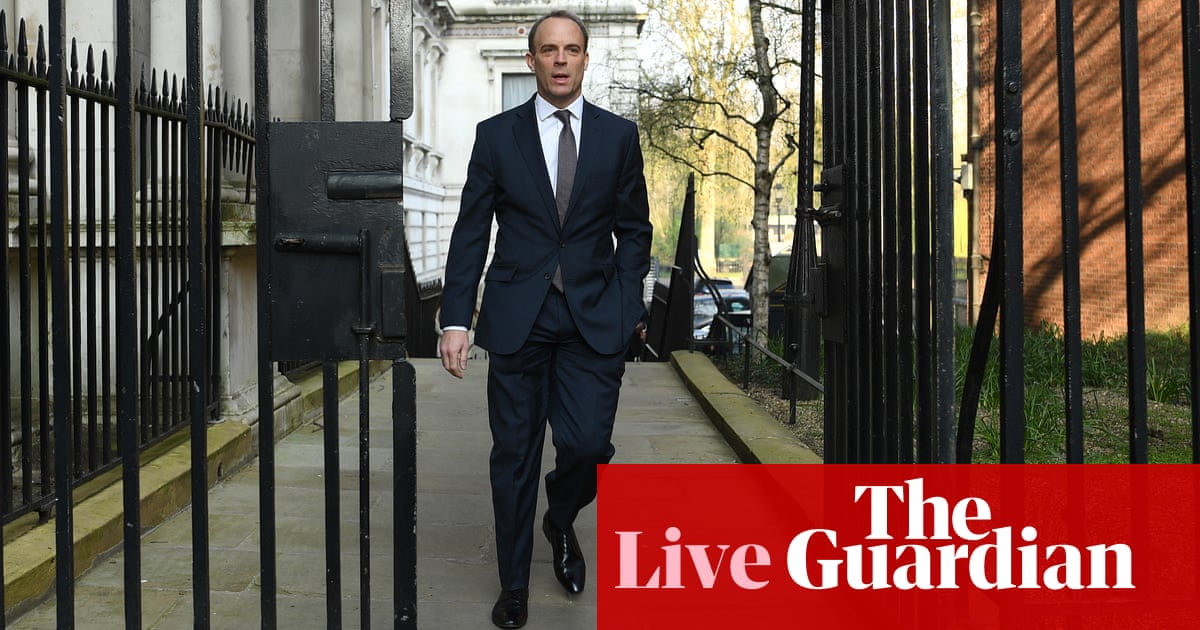
Unfair behaviour from ministers is damaging government policymaking, meaning civil servants may feel afraid to give frank advice, a former senior adviser to Dominic Raab has said.
Raab is under investigation over eight separate complaints across three ministerial departments. The inquiry into his behaviour by the independent investigator Adam Tolley KC is likely to be completed within the next month. The probe will only “establish the specific facts” surrounding the claims, on which Rishi Sunak will then rule.
Writing for the Guardian, Moazzam Malik, a former director general at the Foreign Office, said Raab had acquired “a reputation for being extremely demanding, bordering on aggressive” and said there was “widespread awareness of his behaviour among staff”.
But he said Raab was far from the only minister whose behaviour meant civil servants learned to curry favour by giving selective advice. Malik said Liz Truss as foreign secretary was “notorious for picking and choosing who she wanted to hear from” and “disagreement led to exclusion”.
“Various people would fall in and out of favour. Officials at the Department for International Trade talked of her having wrecked the ministry’s ability to function effectively,” he wrote.
He said it ended up having a particular effect on the policymaking process. “When ministers behave badly, it is usually because they don’t like what they are being told – and decide to take it out on the messenger,” he wrote. “At departments, such as the Foreign Office and Home Office, the incentives are to agree with the minister rather than to challenge. It is little wonder that Whitehall’s policy processes look damaged as a consequence.”
Raab has previously said he is “confident that I’ve behaved professionally throughout” his time in government. He added: “I think the lion’s share of the time, the vast majority of cases and the time we spend together, civil servants and ministers work very effectively together.”
Malik, now an honorary fellow at Hertford College, Oxford University, said he had spent 25 years as a civil servant, with bad behaviour also evident from Labour ministers. He said it was “deeply corrosive” when bosses were not prepared to confront bad behaviour from junior ministers or special advisers.
“Some on the receiving end fell ill, suffered anxiety at work, needed psychological support, and many had to be moved to other duties to get them out of harm’s way,” he wrote.
Malik said he had doubts about the abilities of permanent secretaries or the cabinet secretary to deal with bad ministerial behaviour, saying they have “few tools beyond the quiet word”.
“In my experience, cabinet secretaries are seldom interested or able to help. The idea that the prime minister might take a complaint seriously is far-fetched – laughable even, in light of Boris Johnson’s dismissal of the bullying findings against Priti Patel,” he wrote.
Malik said the investigation into Raab should lead to new rules and mechanisms. “If any good can come out of the Raab episode, regardless of Tolley’s findings, it is this: practical and effective rules and mechanisms to stop ministerial bad behaviour and to ensure the integrity of the UK’s ability to make sound policy,” he wrote.
Sunak is being asked to request that his independent ethics adviser make a judgment on whether Raab broke the ministerial code, once the report is finalised.
Complainants have now given evidence, along with witnesses and Raab himself. Sunak will have to make a decision on whether Raab’s behaviour amounts to bullying or hand the case to his independent adviser, Sir Laurie Magnus, to adjudicate in line with the ministerial code.












